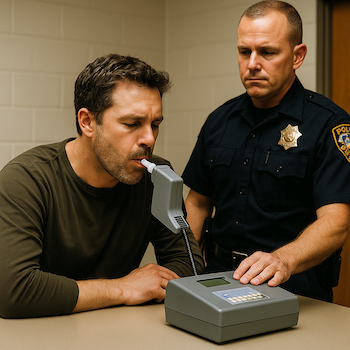 Implied consent laws in Illinois require drivers to submit to chemical tests for alcohol or drugs if arrested for DUI, and refusing can trigger severe penalties even without a conviction. As a Will County DUI lawyer with over 20 years of experience, including as a former prosecutor, I've defended clients in Joliet against refusal charges, often turning what seems like a simple decision into a prolonged license battle. Under 625 ILCS 5/11-501.1, by driving in Illinois, you consent to breath, blood, urine, or preliminary breath tests; refusal leads to statutory summary suspension (3 months for first, 12 months for second, 3 years for third+). In 2025, with heightened enforcement on cannabis impairment (THC thresholds at 5 ng/ml), refusals are scrutinized more, as they can be used as evidence of guilt in court. Understanding these laws is critical, as a refusal can escalate a standard DUI to aggravated status, leading to fines, jail, and extended revocations—defenses like challenging the arrest or test administration can mitigate impacts and preserve your driving rights.
Implied consent laws in Illinois require drivers to submit to chemical tests for alcohol or drugs if arrested for DUI, and refusing can trigger severe penalties even without a conviction. As a Will County DUI lawyer with over 20 years of experience, including as a former prosecutor, I've defended clients in Joliet against refusal charges, often turning what seems like a simple decision into a prolonged license battle. Under 625 ILCS 5/11-501.1, by driving in Illinois, you consent to breath, blood, urine, or preliminary breath tests; refusal leads to statutory summary suspension (3 months for first, 12 months for second, 3 years for third+). In 2025, with heightened enforcement on cannabis impairment (THC thresholds at 5 ng/ml), refusals are scrutinized more, as they can be used as evidence of guilt in court. Understanding these laws is critical, as a refusal can escalate a standard DUI to aggravated status, leading to fines, jail, and extended revocations—defenses like challenging the arrest or test administration can mitigate impacts and preserve your driving rights.
Understanding Implied Consent and Refusal Penalties
Implied consent means agreeing to testing in exchange for driving privileges; officers must inform you of consequences before refusal. Refusal triggers automatic suspension by the SOS, independent of criminal charges, with no hearing to contest initially. Penalties include:
- First Refusal: 12-month suspension (reduced from 3 months if you take the test but fail).
- Second or More: 36-month suspension.
- With Injury/Death: Lifetime revocation.
In Will County, refusals during stops on I-80 or Route 53 often lead to immediate towing and SR-22 insurance mandates for 3 years. For 2025, blood draws for suspected drug impairment are more common, and refusals can support probable cause for search warrants.
Defenses Against Refusal Charges and Suspensions
Defenses focus on procedural flaws: Argue the officer didn't properly advise you of rights, the arrest lacked probable cause, or the test was improperly requested (e.g., no reasonable suspicion). In court, challenge the suspension via a petition to rescind within 90 days, potentially restoring privileges. For 2025 cannabis cases, refusals are harder to defend due to non-breath tests, but medical marijuana cards can complicate impairment arguments. Successful challenges can suppress refusal evidence, leading to dismissals or reductions to reckless driving.
Long-Term Consequences of Refusal
Refusals can compound DUI penalties, adding community service, treatment requirements, and BAIID for reinstatement. Criminal records from related charges hinder jobs and housing.
Why Hire a Will County DUI Lawyer for Refusal Cases?
Refusals complicate defenses—expert help files timely petitions and suppresses evidence. At Will County DUI Lawyers, led by Jack L. Zaremba, we specialize in implied consent challenges, suspensions, and reinstatement.
Contact us today for a free consultation at our contact page or call (815) 740-4025. Fight your refusal charge effectively.

